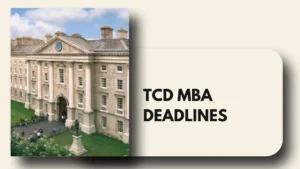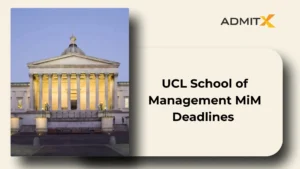Many Indian students have heard about TOEFL, but few understand it correctly.
In this modern world, knowledge of the English language is essential for excelling in any field, be it academic or professional. TOEFL is a form of assessment test that measures the proficiency and aptitude of an individual on various standards such as critical thinking, interpersonal communication etc.
It measures the aptitude of the English language in four skills- speaking, listening, reading, and writing.
Here, we have presented a blog that encapsulates every detail of the TOEFL exam that one should know about before starting to prepare for it.
- Introduction of the TOEFL Exam
- Why is the TOEFL Exam Important?
- Types of TOEFL Exam
- Editions of TOEFL iBT Exam: Types, Eligibility & Requirements
- TOEFL Exam Pattern
- TOEFL Exam Pattern: Breakdown of Sections
- TOEFL Exam Syllabus: Covered Topics
- Registration for the TOEFL iBT Exam
- TOEFL iBT Test Preparation: Strategy to Ace the Exam
- Preparation Strategy: TOEFL Mock Test
- Best Sources of TOEFL Mock Test
- Conclusion
- FAQs
Introduction of the TOEFL Exam
TOEFL, or Test of English as Foreign Language, is a standardised exam administered by ETS that evaluates and assesses the English language proficiency of individuals whose first language is not English and who are looking to pursue studies or work where English language competence is required. It is accepted in more than 13,000 universities in over 160 countries, including the USA, Canada, the UK, Australia, New Zealand, and more.
TOEFL is now aimed to cater to a wide range of learners with varying needs, from young students just beginning their English language journey to professionals and university applicants.
In this blog, we have discussed various components of TOEFL, such as its type, eligibility for TOEFL exam, fees, strategy to prepare for TOEFL, mock tests, and much more.
Why is the TOEFL Exam Important?
TOEFL has now become an essential part of the eligibility criteria in almost every foreign college and university where Indian students look to pursue admissions to have better career opportunities. However, the requirement for a TOEFL score can vary from one university to another. Also, when the medium of instruction for the previous course/program was English, submitting the TOEFL score to get admission to most universities and courses is optional. Since the TOEFL is a reputed and most acceptable criterion for admission, its importance must be considered, as discussed below.
Acceptance of TOEFL: Since TOEFL is accepted in more than 10,000 universities in over 160 countries, Apart from Colleges and Universities, the TOEFL exam is used as a benchmark by numerous professional bodies and government agencies to check the eligibility of candidates for prestigious academic programs and employment based on English language aptitude.
Opportunities and Benefits: It checks whether the aspiring student or candidate can understand and communicate in English, based upon which high-paying jobs, scholarships, and other benefits can be offered.
Improves Language Skills: TOEFL improves communication skills and understanding of higher levels of English language skills because it requires rigid preparation of tests based on specific criteria and standards.
World Wide Recognition: A single TOEFL score can open the door to pursue unlimited opportunities to study, work, and live in world-renowned countries like the USA, the UK, Australia, Canada, New Zealand, etc. Some countries use TOEFL scores as part of their immigration processes, making it a valuable credential for those seeking to live and work abroad.
Types of TOEFL Exam
As we discussed earlier, the TOEFL is an assessment tool to check the aptitude for the English language to seek academic programs not only in colleges and universities but also for employment and other professional purposes.
Let’s explore the differences between various types of TOEFL, collectively called the TOEFL family.
| Type of TOEFL | Content | Exam Duration | Format | Validity |
|---|---|---|---|---|
| TOEFL Academic - PBT | Academic English based on university coursework | 2 Hours 30 Minutes | Listening Writing Reading | No longer valid in India |
| TOEFL Academic - CBT | Academic English based on university coursework | 3 Hours | Listening Writing Reading | No longer valid in India |
| TOEFL Academic - iBT | Academic English based on university coursework | 2 Hours 30 Minutes | Listening Writing Reading Speaking | 2 Years |
| TOEFL Essentials | Academic and general English | 1 Hour 30 Minutes | Listening Writing Reading Speaking | 2 Years |
| TOEFL ITP | Internal assessment of English proficiency of the students by institutes | 3 Hours 30 Minutes | Reading comprehension Listening comprehension Structure Written expression Speaking. | 2 Years |
| TOEFL Junior | Assessment of foundational level of English in children aged 11+ | 1 Hour 55 Minutes | Reading Comprehension Listening Comprehension Language Form Meaning Oral Communication Writing Communication | 2 Years |
| TOEFL Primary | Foundational level evaluation of English in children aged 8+ | 2 Hours | Basic English communication skills Learning | 1 Year |
Below, we have discussed different types of TOEFL exams in detail
- TOEFL Academic
- TOEFL Paper Based Test
- TOEFL computer-based test
- TOEFL iBT (Internet based test)
- TOEFL Essentials
- TOEFL ITP
- TOEFL Junior
- TOEFL Primary
Let’s discuss them one by one.
TOEFL Academic
TOEFL Academic is a version of the TOEFL exam that evaluates non-native speakers’ understanding and knowledge of the English language in an academic context and their readiness for academic coursework conducted in English.
TOEFL Paper Based Test (PBT)
Since the inclusion of TOEFL in academic pursuits, the test has been conducted offline or on paper. Still, with the advancement of technology and limited reach, it was discontinued and replaced by TOEFL iBT. However, it still operates in some regions because of limited internet availability.
It was discontinued in India, and its score is no longer valid.
TOEFL Computer Based Test (CBT)
The TOEFL Computer-based test or CBT was a prominent assessment till 2006 in which the candidate used to sit at a computer system and undergo the test. It was better than PBT in terms of accessibility and involvement of minimum resources, but it was phased out in 2006.
TOEFL Internet Based Test (iBT)
As the name indicates, it is an internet-based test that checks comprehensive understanding and knowledge of English. Unlike CBT, it can be taken at home, although TOEFL centres are also present worldwide to facilitate participation.
It includes all four academic English skills, e.g.,
- Listening
- Writing
- Speaking
- Reading
- TOEFL iBT is required to gain admission to the academic institutes of North America and Europe.
There are two versions of TOEFL iBT:
- TOEFL iBT Test
- TOEFL iBT Home Edition
TOEFL Essentials
The TOEFL Essentials Test is another English language assessment test that evaluates academic and general English, commonly used in everyday life. ETS was introduced during the COVID-19 pandemic to give students flexibility in appearing in the proficiency exam.
It is a purely home-based test. It also checks all four academic English skills, e.g.,
- Listening
- Writing
- Speaking
- Reading
Unlike TOEFL iBT, it includes short and engaging tasks, and its duration is short, e.g., 90 minutes.
Around a hundred institutions worldwide have approved it as an alternative to TOEFL iBT to check the English language proficiency of students.
TOEFL ITP
The TOEFL ITP, or TOEFL Institutional Testing Program, is a paper-based version of the TOEFL that is very different from TOEFL iBT. It is aimed at students that are 16+. It is administered by universities, colleges, and language schools for internal assessment purposes like measuring the students’ proficiency level in four different skills:
- Reading comprehension
- Listening comprehension
- Structure
- Written expression
- Speaking.
There are a few contexts in which it is used:
- For placing the students in English language training classrooms
- Monitoring student progress in English language courses.
- To prepare students for TOEFL iBT.
- Admissions to short-term and diploma programs.
TOEFL Junior
TOEFL Junior is another version of the TOEFL and is a part of the TOEFL Young Students test series that aims to assess and impart the foundation of English language skills in children aged 11+. It measures the communication skills of young children to identify their strengths and build newer ones.
TOEFL Junior consists of three tests:
TOEFL Junior Standard Test: Measures reading comprehension, listening comprehension, and language form and meaning.
TOEFL Junior Speaking Test: Measures students’ ability to communicate orally in English in the classroom.
TOEFL Junior Writing Test: Measures students’ ability to communicate in writing for social and academic purposes.
There are a few contexts in which it is used:
- Assessment of the academic and social English proficiency skills.
- It gives insight into students’ ability to listen, speak, write, and read.
- Develop an early learning environment for younger ones.
TOEFL Primary
Much similar to TOEFL Junior, it is a version of the TOEFL that evaluates and measures the English communication skills of young students to guide their goals and monitor academic progress.
TOEFL Primary consists of three steps:
Reading and Listening Test – Step 1: For the beginning stages of learning English
Reading and Listening Test – Step 2: For students having some basic English communication skills
Speaking Test: For students having English language proficiency at various levels
There are a few contexts in which it is used:
- Assessment of the academic and social English proficiency skills.
- It gives insight into students’ ability to listen, speak, write, and read.
- Develops an early learning environment for younger ones.
Editions of TOEFL iBT Exam: Types, Eligibility & Requirements
As mentioned above, students can take the TOEFL exam either at the test centre (TOEFL iBT test) or home (TOEFL Home edition), depending on their flexibility and comfort.
Let’s understand their basic features, differences, eligibility and more.
TOEFL iBT Test
The TOEFL iBT test is conducted on a computer system at an authorised test centre. This allows students to take the exam under proper test conditions without any distractions.
It is conducted six days a week at selected centres. Currently, there are more than 3000 test centres worldwide. The TOEFL iBT test (centre edition) uses a standard English-language (QWERTY) computer keyboard.
TOEFL iBT (Home Edition)
The TOEFL iBT Home Edition is conducted similarly to the centre edition. Still, the primary difference is that students can take the test at home in the former edition, in suitable and comfortable conditions.
Unlike the centre edition, the exam time is open to students four days a week so that they can take tests at any time, conveniently and flexibly.
Requirements of the TOEFL Home Edition
Here, we will discuss the specific requirements a TOEFL iBT (Home Edition) candidate must meet before appearing for the test.
Since candidates who opt for the home edition test are prone to using unfair means while attempting it, ETS has created specific guidelines to prevent them from practising such activities.
Equipment
- Using multiple monitors is prohibited; candidates can use only one monitor or screen.
- The operating system must be licensed.
- Candidates are required to download and install the ETS secure test browser on the system.
- Candidates are prohibited from using earphones. Instead, they can use speakers to hear the invigilator’s instructions.
- The webcam should be adjusted so an invigilator sees a 360° view of the testing room.
Environment
- The doors of the testing rooms must be locked.
- There should be no one in the testing room except the candidate.
- The room and table should not have any material or content that can hinder the test.
- While testing, candidates should dress appropriately.
- Any study material, notes, etc, are not allowed in the testing room.
- The system must be placed on the desk or tabletop rather than a bed.
Eligibility of TOEFL iBT Exam
- No specific eligibility criteria are set to appear in the TOEFL iBT test.
- Candidates from all age groups and educational backgrounds can undergo the test provided they have followed the procedures appropriately.
- There is no limit on the number of test attempts.
- Multiple retakes of the iBT test are permitted until the candidate gets the desired score.
TOEFL Exam Pattern
It is essential to understand the TOEFL exam pattern and format, which elaborates on how the test will proceed and what it takes to crack it. Although there is no limit to the number of participants, it is better to prepare strategically so that it can be cleared in the first attempt.
Preparation of the TOEFL iBT exam requires a thorough understanding of the format and pattern and the design of a strategy accordingly.
Below, we have presented the tabulated form of the test pattern, which one should know and understand to structure their mindset for the exam.
| Sections | Questions/Task | Time Duration | Description |
|---|---|---|---|
| Reading | 20 questions | 35 minutes | Passage reading and responding to questions |
| Listening | 28 questions | 36 minutes | Q/A session based on classroom lectures and discussions |
| Speaking | 4 tasks | 16 minutes | Talk about a general and familiar topic |
| Writing | 2 tasks | 29 minutes | Stating the opinion or answer in written form based on classroom discussion or passage reading |
TOEFL Exam Pattern: Breakdown of Sections
Let us now understand each section to commence better TOEFL test preparation.
Reading Section
It checks the reading and understanding abilities of the student in an academic setting.
- Content: 2 passages, each of 700 words
- Number of questions: 20 MCQs (10 questions per passage)
- Time Duration: 35 minutes
Type of questions
The reading section of the TOEFL iBT test consists of questions based on the following topics:
- Factual Information & Negative Factual Information
- Inference & Rhetorical Purpose
- Vocabulary
- Sentence Simplification
- Inert Text Question
- Prose Summary
Listening Section
The listening section of the TOEFL iBT test assesses the
- basic comprehension
- understanding the intention of the speaker
- connecting information
Content: 3 lectures (3-5 minutes each) and 2 conversations (3 minutes each)
Number of questions:
- 6 questions per lecture (18 questions).
- 5 questions per conversation (10 questions).
Time Duration: 36 minutes
Type of questions
The listening section of the TOEFL iBT test consists of questions based on the following topics:
- Gist Content and Gist Purpose
- Detail
- Function
- Attitude
- Organisation
- Connecting Content
- Inference
Speaking Section
The speaking section of the TOEFL iBT test evaluates the ability of the students to speak the English language fluently in academic pursuits.
- Content: Tasks based on Independent speaking and Integrated speaking skills.
- Number of questions: 4 tasks (45-60 seconds per response)
- Time Duration: 16 minutes
- Speaking Response: Students are needed to speak into the microphone to respond to questions.
Type of questions
The speaking section of the TOEFL iBT test consists of questions based on the following topics:
- Task 1 or Independent speaking task
- Task 2-4 or Integrated Speaking Task
Writing Section
It assesses the communication skills of the students in actual academic pursuits. It checks their ability to express their ideas or opinions clearly.
- Content: A passage and online classroom discussion
- Number of questions: 2 tasks
- Time Duration: 29 minutes
- Speaking Response: Students need to talk using the microphone.
Type of questions
The writing section of the TOEFL iBT test consists of questions based on the following topics:
- Task 1 or Integrated writing task:
Time Duration: 20 minutes
- Task 2 or Academic Discussion Task:
Time Duration: 10 minutes
TOEFL Exam Syllabus: Covered Topics
There is no specific TOEFL Exam syllabus, as the students are required to have a general awareness of their surroundings, which will help them express their opinions or ideas specifically. Although the TOEFL exam paper contains comprehensive passages and questions based on which students have to respond through their analytical and critical thinking skills, it doesn’t require too much worry about the syllabus.
Students should develop and polish soft skills that will help them get good scores.
The questions and tasks may be derived from the following general topics:
- Agriculture Sciences
- General Knowledge & Current Affairs
- Science & Technology
- Social Sciences
- Humanities
Registration for the TOEFL iBT Exam
Indian students aspiring to participate in the TOEFL iBT test need to register for the exam. The application process for the TOEFL iBT Exam can be submitted through the following ways:
- Create an account on the ETS Official website.
- After account creation, choose whether you want to participate in the test at the centre at home.
- Now go through the calendar that popped up there and select the date on which you want to give the test from available dates.
- After selecting a date, choose your test timing.
- Proceed with ‘Confirm’.
- Now, fill out the personal details like name, contact number, address, etc.
- On the next page, you will be asked to fill in the motivation details to participate in the TOEFL test.
- Upon completing it, proceed with ‘continue’.
- On the next page, you need to fill in the maximum four names of the academic institution in which you are looking to pursue higher education.
This is an optional field.
- Proceed with ‘review registration’.
- On the next page, you will be redirected to ‘My carts’. There, you can also purchase TOEFL exam material and mock test papers from ETS.
- Now click on ‘pay’ and make a purchase.
Important Things to Know While Registering
- The test centre and test time are subject to change. You are required to confirm the details once before appearing for the test by logging in to your ETS account.
- If you choose to appear for the test at the centre, then you will be shown a list of test centres. Select the most appropriate centre from the list.
- Since the TOEFL score is sent directly to an academic institution (in case you are sitting in a test to get enrollment in a foreign institution), you can enter a maximum 4 names of those institutes which you are looking for.
- No other person can appear for the test in your place because the registration is not transferable.
- Offline registrations are not available.
ID Requirements
For Indian students, only a passport with a name, photo, and signature is acceptable as proof of identity to appear on the test.
TOEFL iBT Test Preparation: Strategy to Ace the Exam
Study Planner
Students are advised to begin their preparation journey almost 3 months before the test. The chart illustrates each week’s objectives and their respective focus area.
| Weeks | Focus Area | Objective |
|---|---|---|
| Week 1 | Introduction of TOEFL iBT Test | Familiarise with test format and syllabus Determine the target score. Take the initial mock test to go through your strengths and weaknesses |
| Week 2 | Speaking Section (Pronunciation, tone, style, fluency, synonyms) | Communicate in the English language to people you are comfortable with Watch English news debates every day Read English blogs or newspapers daily |
| Week 3 | Reading Section (Vocabulary, sentence formation, pronunciation, synonyms) | Read full-fledged English newspapers and blogs daily within a time limit Analyse what you have read and make notes Give mock tests |
| Week 4 | Listening Section (Holding accent and enunciation, assimilation, judging the tone of the speaker) | Listen to English podcasts and audio shows on FM every day and make notes Analyse the notes and infer the basic idea behind the discussion Watch English news, shows and movies (without subtitles) |
| Week 5 | Writing Section (Comprehension of sentence structure, tone, imagination, answer making, formal communication) | Read the basic rules of grammar Write an essay on a familiar topic and get it checked by the tutor Analyse the basic points present in the essay and reframe it |
| Week 6 | Test and Practice | Evaluate your responses by a tutor or expert Analyse your test scores section-wise Focus on weaker points |
| Week 7 | Retest and Preparation for the Test Day | Attempt test in a given time frame Compare and analyse current and previous scores Make revisions |
| Week 8 | Preparation for the final week | Take mock tests and get them evaluated Continue preparation Gather your documents |
Test Prep Strategies
Below, we have mentioned some essential before-registration, after registration and test-day tips for students:
Before Registration
- Check the minimum TOEFL score criteria by visiting the college/university website to set the target score.
- Go through the format, pattern, and syllabus to learn more about the nature of the test.
- Gather an authentic study tool kit like ETS TOEFL Test Ready, which provides sufficient study resources like study guides, mock tests, performance insights, progress trackers, etc.
- Go through the study prep planner and follow the strategies given.
- At the end of each week, give mock tests and analyse your performance for the particular section you were preparing for.
- At the end of the seventh week and before the beginning of the eighth week, give a full-fledged practice test and get it evaluated by the expert.
- When you feel like appearing for a test, arrange and gather all the necessary documents to initiate the registration process on the official website of the ETS.
After Registration
For testing at the centre:
- Log into the ETS account to confirm the location and time of the test.
- Determine your route to avoid chaos.
- It is essential to know that applicants must visit the centre at least 30 minutes before check-in.
- Carry a valid ID card to show at the centre during check-in.
For testing at home:
- Know and meet the equipment and environmental requirements before the test at home.
- Review the operating conditions of the computer.
- Have sufficient sleep and relaxation before appearing for the test.
On the Test Day
- Sleep early in the night before the test.
- Wake up early in the morning.
- Before appearing for the test, have sufficient good meals like fruits, green vegetables, milk, etc..
- Since the TOEFL test takes 2 hours without any break, use the washroom beforehand.
- Dress appropriately and avoid any attire that can cover the head, face or ears.
- Avoid wearing any religious handwear or attire.
- Do not carry personal belongings like mobile devices, watches, food, drinks, etc.
- Visit the centre in at least 30 minutes for check-in.
- Carry a valid ID card to show at the centre during check-in.
Test-Taking Tips
- Read and know the directions carefully.
- Make responses carefully after reading the question.
- Do not spend much time on one question; proceed to the next one.
- Refrain from thinking about previous answers.
After Test
After the completion of the test, the applicants need to follow the following guidelines:
- After completing the test, the scores will be allotted immediately.
- Applicants can either choose to report or cancel the scores.
- On choosing to cancel the scores, they will not be sent to the institutions, and no refund will be issued.
- On reporting the test scores, applicants will be given the date they expect to receive their official scores in the ETS account.
Preparation Strategy: TOEFL Mock Test
TOEFL mock tests or practice tests simulate the actual test environment and reflect students’ level of competency. It also provides insights into prep strategies that a student adapted and applied.
The following are the importance of the TOEFL mock test:
Analysis of Test Pattern: Appearing in the TOEFL mock test helps students to know about the test format and pattern, which cannot be understood by merely reading. Mock tests guide students to learn about the nature of the TOEFL exam.
Development of Adaptability: Students preparing for the TOEFL iBT test must appear in its mock test because it gives them the strengths and weaknesses that they possess. Mock tests help them adapt to actual test environments, such as completing tests in a given time and following a simulated code of conduct, etc.
Practice makes a Man Perfect: Well, this quote also holds when it comes to preparing for the TOEFL exam. Most of the students who prepare for the TOEFL iBT test possess a lack of confidence and sometimes a sense of fear due to the uncertainty of its nature. Attempting the TOEFL mock test again and again brings confidence and boosts the morale required to ace the exam.
Best Sources of TOEFL Mock Test
Below, we have provided a list of some of the best and most popular sources that not only offer TOEFL mock tests but also guide students on prep strategies and impart useful courses before appearing for the test.
- ETS TestReady by ETS
- Udemy TOEFL iBT Complete Prep Course
- Manhattan Review’s Free TOEFL Practice Test
- AI-Powered TOEFL Test Prep and Mock Tests by TestGlider
- TOEFL Practice Test by Magoosh
These resources offer useful and practical ways to prepare for TOEFL. Below are some advantages and features that they provide:
- TOEFL iBT Test Essential Skills for Success
- Complete prep course
- Series of Lectures and mock tests
- Detailed insights and feedback by experts
- Personalised study plan
- Full-length practice tests along with guidance on problem-solving approaches, etc.
- Attention to Individual Sections
- Free Test Guides, etc.
Conclusion
TOEFL is one of the world’s most reputed and famous language proficiency tests that evaluates the communication and understanding level of those who want to explore academic and professional opportunities outside India. TOEFL scores are valid all over the world for imparting educational, employability and migration opportunities. Acing the TOEFL test can be a cakewalk for those who know about the nature of the exam. There are several types of TOEFL tests conducted for various people of different age groups and purposes that they hold.
Indian students desiring to pursue higher studies in foreign universities must appear for the TOEFL iBT test. One needs to be single-minded and focused while preparing for the test.
FAQs
Can I reschedule my TOEFL exam?
Yes, you can reschedule your TOEFL exam if you are unable to appear on the scheduled day or time. ETS allows early rescheduling (7+ days before the exam) and late rescheduling (4-5 days before the exam) on your ETS account. However, it does not allow last-minute rescheduling.
Is TOEFL accepted in UK universities?
There is no official news or notification regarding UK universities’ non-acceptance of TOEFL. All UK universities accept the TOEFL test.
What TOEFL score is required by universities in the USA?
The TOEFL score required to get to top universities in the USA is 90-100. However, it may depend on the institution and the academic course which the student wants to pursue.
If you are an aspirant looking to study at your dream university, book an appointment with AdmitX today and start your applications early to avail yourself of all the benefits.

















